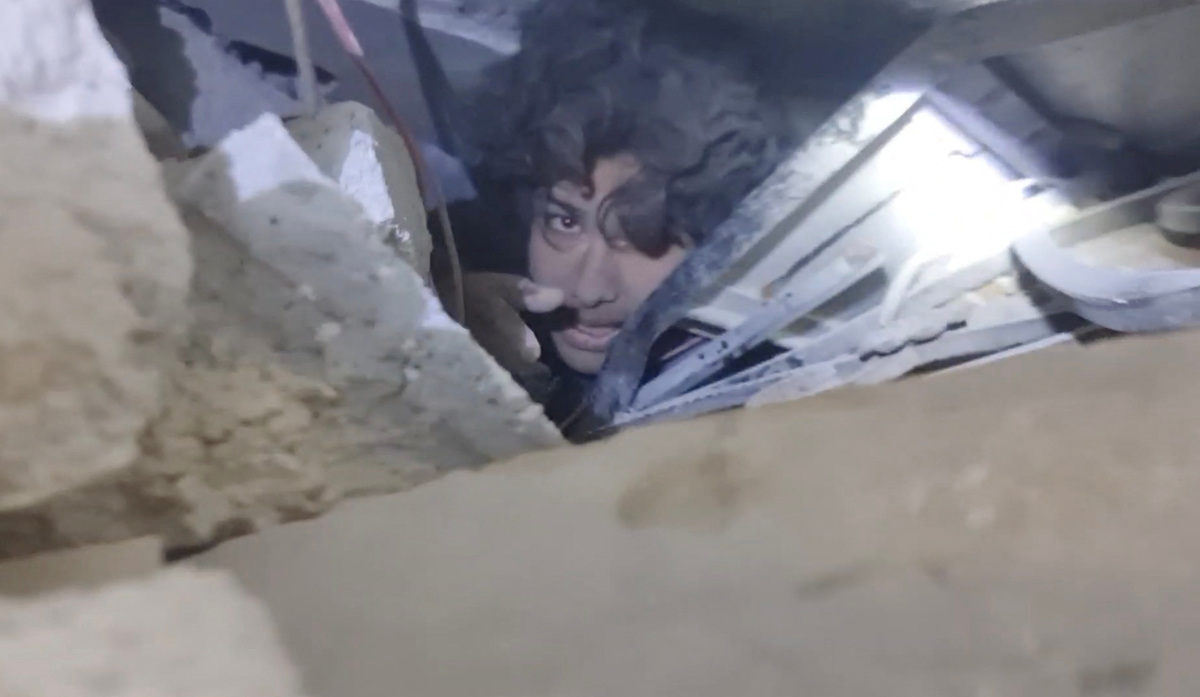
Naser al-Wakaa kept his family safe through years of war, bombings and air raids until Monday's earthquake struck their home in Jandaris in northwest Syria, levelling the building and burying his wife and most of his family under the masonry.
Rescuers pulled two of his children alive from the rubble at night. Video showed them bruised and covered in dust. Another child also survived. But his wife and at least five of his children were killed.

He sat amid the ruins of his home, surrounded by broken concrete and twisted metal, grieving his loss as he held baby clothes tight to his face. In despair and confusion, he named his children - boys and girls - without saying how many he had.
"The house shook. We are used to airstrikes. We are used to rockets, to barrel bombs. This is normal to us. But an earthquake, it's an act of God," he said.
"I ran out of the house and said 'please God, let one survive. I just want one of my kids'," he said.

The disaster has killed more than 21,000 people, mostly in Turkey, but also including more than 3,000 in Syria.
In his home town of Jandaris, across the border from Turkey in a rebel-held enclave, many houses were razed and others were partially collapsed. Rescue workers and residents, sometimes helped by mechanical diggers, dug into ruins to find survivors.
In another part of town, rescuers pulled out five year-old Ahmed Abduljabbar, the only survivor from his family of six. His adult cousin, Ahmed Abu Chehab, spent hours heaving up broken masonry to reach him before he was whisked to an ambulance.
From his bed in a hospital near the city of Azaz, the boy said: "My father and I were sitting in the living room when I heard the sound of the earthquake hitting."
The imam leading Friday prayers at a Jandaris mosque struggled to hold back tears as he preached.
A U.N. agency said 14 aid trucks crossed into northwest Syria on Friday, the first outside assistance to reach a region held by rebels fighting the Damascus government and among the areas worst affected by Monday's earthquake.
After the quake, Wakaa had called for several of his sons, learning that two boys, Faisal and Mohsin, had both perished.
His eldest daughter Heba was also found dead, along with her little sister Israa in her lap. Samiha, another sister, was found dead nearby.
Wakaa gripped a scrap of paper in his hand that had been found in a notebook buried in the rubble. In neat handwriting, were the words addressed to her father "You are in the hands of God and in my heart, Abu Faisal". Alongside was an inked heart.
At a cemetery, Wakaa watched in grief as gravediggers lower the body of one of his children, shrouded in white, into a communal grave with other victims of the disaster.
(Reporting by Khalil Ashawil; Writing by Angus McDowall and Andrew Heavens; Editing by Frances Kerry and Edmund Blair)







